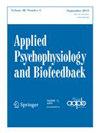Heart Rate Variability, Hypnosis, and Psychotherapy
Abstract
Hypnotherapy is increasingly recognized as an effective treatment option for a wide range of psychological conditions and the psychological elements of physiologic health concerns. Despite its growing use, the mechanisms underlying hypnotherapy's therapeutic benefits remain unknown. Heart rate variability (HRV), a non-invasive biomarker of autonomic nervous system (ANS) activity and other processes relevant to the psychophysiological stress response, has been used to study the physiological effects of hypnosis. HRV is associated with adaptability to stress and overall mental and physical health. We review how HRV changes during hypnosis treatment and propose mechanisms by which hypnotherapy influences the stress response and psychological flexibility and improves wellbeing. Additionally, we highlight the use of HRV biofeedback as an adjunct to hypnotherapy and psychotherapy and illustrate its potential to enhance therapeutic outcomes. To showcase practical applications, we present a case study of hypnotherapy’s impact on HRV in the treatment of hot flashes in post-menopausal women. We conclude by calling for further empirical research, particularly randomized controlled trials, to solidify the integration of HRV metrics in hypnotherapy practice. Understanding the interaction between hypnotherapy and HRV will support more targeted and effective interventions, benefiting both clinicians and patients.

 求助内容:
求助内容: 应助结果提醒方式:
应助结果提醒方式:


